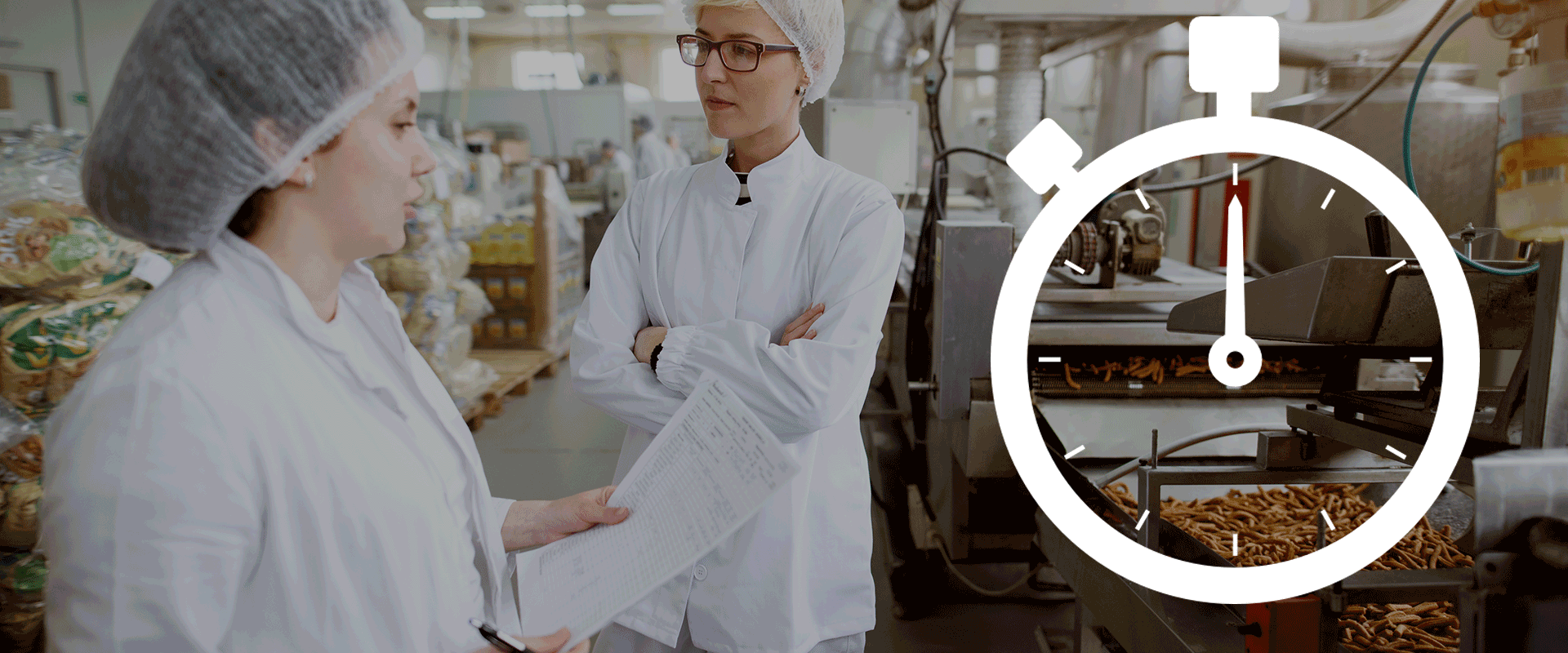The COVID-19 pandemic may be waning, but the effects of the disruptions and shutdowns of 2020 will be with us for years to come. For food and beverage processors, the pandemic uncovered both opportunities and weaknesses. According to a report by McKinsey, companies that had installed or were well along in installing Industry 4.0 food processing software solutions were best able to meet the COVID-19 challenges.Sudden changes such as spikes in demand, disruptions in the supply chain, and changes in consumer behaviors were best managed by those companies that had Industry 4.0 technology installed. The pandemic's unique circumstances demonstrated that having Smart Factory software installed and running was essential for companies’ survival during the ups and downs of the COVID-19 crisis.
Recent developments in Industry 4.0 food processing software solutions provided the flexibility for these companies to make adjustments when consumers suddenly altered their buying habits. For example, many people switched from in-store to online shopping, suddenly causing processors to manage increasing volumes of individual orders. In other cases, due to store closings, distributors suddenly needed a different mix of products. In these cases and others, processors depended on food processing software solutions and Industry 4.0 techniques to give them the ability to successfully satisfy their customers.
Below are some recent developments in food processing software solutions manufacturers are adopting to face these new and changing market conditions.
Data Management
More and more companies are consolidating company data into a central database from which all employees can access the required information. Generally, this data is stored in the cloud with software accessing the data as needed. Using a central consolidated data source means all employees work with information derived from a single source. Decisions, discussions, and actions across the enterprise are then based on the same information.
Worximity Technology is the industry leader in providing state-of-the-art data monitoring and collection systems. Worximity’s Smart Factory analytics software gathers data in real-time from process equipment and sends it to a cloud database. From there, analysis and reports are available to all employees for monitoring and decision-making.
Current and up-to-date information for critical items such as recipes, labeling data, inventory balances, and order status are available to all employees. This helps keep team members, especially those working remotely, focused on common goals and objectives.
Process Management
As companies saw pandemic-related spikes in demands for some products and reduced demand for others, those companies with real-time process line data were able to make needed changes quickly and adjust to changing conditions. Having up-to-the-minute production data meant lines could be switched to other products quickly to satisfy shifts in demand.
Not only can line information be used to manage unusual fluctuations in demands or requirements, but data from these systems also form the basis for continuous improvement programs. Managing an Industry 4.0 company means having the right data available at the right time.
Recent developments in food processing software solutions involving artificial intelligence and robotics applications also build flexibility into line and production processes. Robots are becoming smaller and more mobile, and they have improved gripping and sensory capabilities. They require no training, do not become fatigued, and can complete multiple tasks quickly. AI software helps planners predict and schedule material, employees, processes, and production. Recent advances in both these areas continue to add powerful tools to manufacturers’ capabilities.
Product Management
Changing demographics and lockdown experiences have raised awareness of food safety and healthy ingredients. New food production methods are being developed, including more plant-based meat products and 3D printed food products. These food processing software solutions are in their infancy, but changing consumer preferences may increase demand for food alternatives in the future.
New ways of using blockchain technologies are also being applied to product ingredient tracking and recall management. The blockchain structure allows for a continuous record of a product’s transaction chain from the field to the final consumer. If contamination is detected or a recall is necessary, this record can be used to quickly produce a complete supply chain history.
For example, in a joint test program with Walmart, IBM used blockchain ledger tracing to generate complete ingredients supply chain histories. The IBM pilot program “reduced the time needed to trace food back to its source from seven days to 2.2 seconds.”
For food and beverage processors, a key part of Industry 4.0 solutions is connecting process lines with a central database coupled with real-time reporting. Worximity's Smart Factory analytics software delivers this essential component for companies seeking the agility and flexibility of Industry 4.0. With information from Smart Factory software, you can maintain low costs, provide high-quality products, and meet customer delivery commitments. Get to know Worximity and learn how Smart Factory analytics can prepare your company for the future.

















